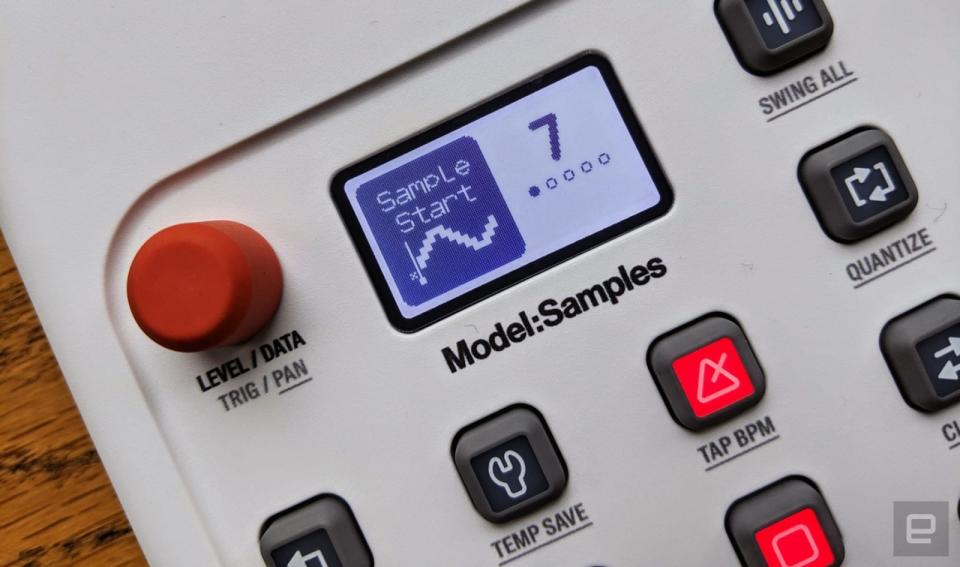Elektron's Model:Samples groovebox gets improved pitch control
The update brings it in line with the recently-released Model:Cycles.
Elektron has made a name for itself making complex and expensive electronic music gear, but over the last year or so it's made a serious bid for the entry-level market -- consumers that are keen to have a tinker around a newbie-friendly instrument rather than professional musicians. Its Model:Samples -- which launched for $449, but is now only $299 -- was designed to simplify Elektron's unique workflow for beginners, and now it's been given an update to give it even beefier features.
There's a whole bunch of improvements, but a couple in particular stand out. Firstly, there's improved pitch control. Previously, pitch on the Model:Samples was in semitones only. More control is essential for getting your samples in tune with each other, especially if you're using stuff pulled from old vinyl. Secondly, there's now velocity as a modulation source, so you can use the force with which you hit the pads to control things other than volume. Harder hits could increase reverb level, for example. The update also brings a higher resolution LFO depth, which is a nice addition.
All of these features were on the Model:Cycles that was released recently –- an entry-level synth that costs just $299, so it makes sense its slightly more expensive older sibling would get them too. Model:Cycles has also had an update, but it focused only on minor bug fixes.

 Yahoo Finance
Yahoo Finance 

